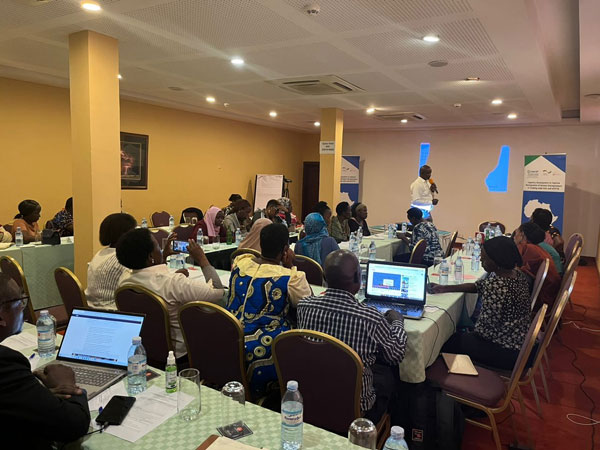
Kampala, Uganda | THE INDEPENDENT | Uganda’s small entrepreneurs have very little information about the opportunities presented by the African Continental Free Trade Agreement (AfCFTA). The agreement, which took effect two years back is yet to see Ugandans benefit from it, according to business leaders and entrepreneurs, despite other countries already venturing into trade under it.
At a training organized by the East African Women in Business Program of the East African Business Council (EABC ) and GIZ, most women entrepreneurs hardly knew AfCFTA and other initiatives of which Uganda is a member.
Adrian Njau, the Trade and Policy Advisor at the EABC says this is one of the reasons that they decided to launch training, especially on how the entrepreneurs can use the provisions of the agreement to import or export.
The lack of knowledge is also attributed to either the lack of interest in doing simple research or the preference, especially by Ugandan entrepreneurs, to work in isolation. There were hardly any women entrepreneurs who had ever tused the national trade portals of the different countries in the region, which were created as an initiative of the EAC to make cross-border trade easier.
. Regina Nakayenga, the proprietor of Rena Beverage Solutions, says the lack of knowledge on trade has affected business growth, giving the example of the knowledge on the availability of experts along the value chain. This has meant that entrepreneurs have to withstand hardships in accessing the regional and continental markets
Because of this, she says, entrepreneurs are forced to operate across the value chain, from production, through process and distribution, to the consumer, which can be counterproductive. She asked the government to invest in this area as well as research.
However, Njau said the lack of knowledge about AfCFTA cuts across all African countries. He says it is important that SMEs, whether producing for the local market or exporting, should know that there is now a possibility of easily exporting beyond the EAC.
Some countries have also started trading under a AfCFTA initiative called the Guided Trade Initiative (GTI) which was launched in Accra, Ghana on 7 October 2022. It seeks to allow commercially meaningful trading and test the operational, institutional, legal, and trade policy environment under the AfCFTA.
The eight countries participating in the GTI are Cameroon, Egypt, Ghana, Kenya, Mauritius, Rwanda, Tanzania and Tunisia and represent five regions of Africa. Uganda is not part of this.
“The products earmarked to trade under this initiative include ceramic tiles, batteries, tea, coffee, processed meat products, corn starch, sugar, pasta, glucose syrup, dried fruits, and sisal fiber, among others, in line with the AfCFTA focus on value chain development,” says Secretary-General of the AfCFTA Secretariat, Wamkele Mene.
However, Njau says even though Uganda and other countries that are not part of the GTI can still trade because the EAC Tariff guides were submitted and accepted at the AfCFTA Secretariat.
The products earmarked to trade under this initiative include ceramic tiles, batteries, tea, coffee, processed meat products, corn starch, sugar, pasta, glucose syrup, dried fruits, and sisal fiber, among others, in line with the AfCFTA focus on value chain development.
Other countries that have met the requirements and deployed the AfCFTA E-Tariff Book and the Rules of Origin Manual and have officially published their tariff rates and have had them approved.
At least 96 products will be traded under the GTI and the initiative will be reviewed annually to expand the list of countries. Lamech Wesonga, the Economic Policy Advisor at GIZ East Africa, said AfCFTA was formed for the benefit of all including small businesses, hence the need for everyone to take an interest in it.
****
URN
 The Independent Uganda: You get the Truth we Pay the Price
The Independent Uganda: You get the Truth we Pay the Price


